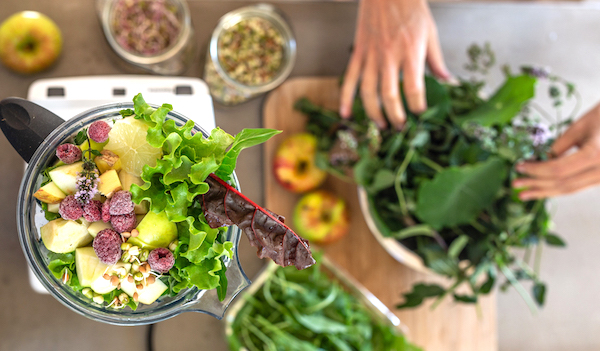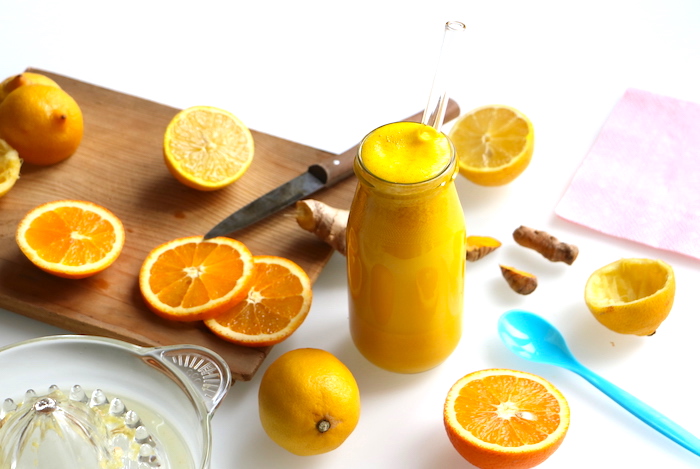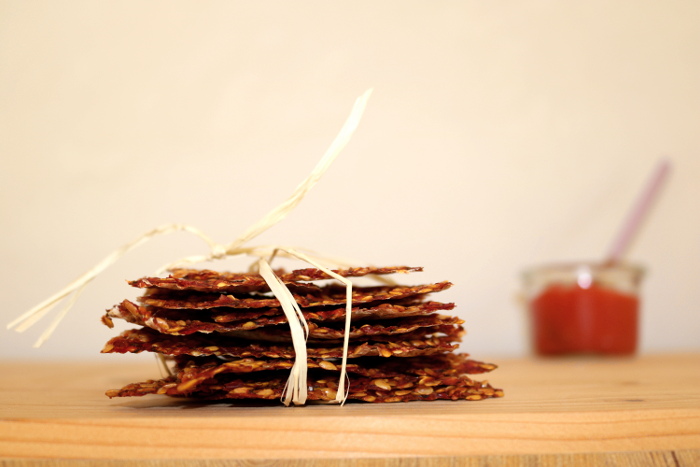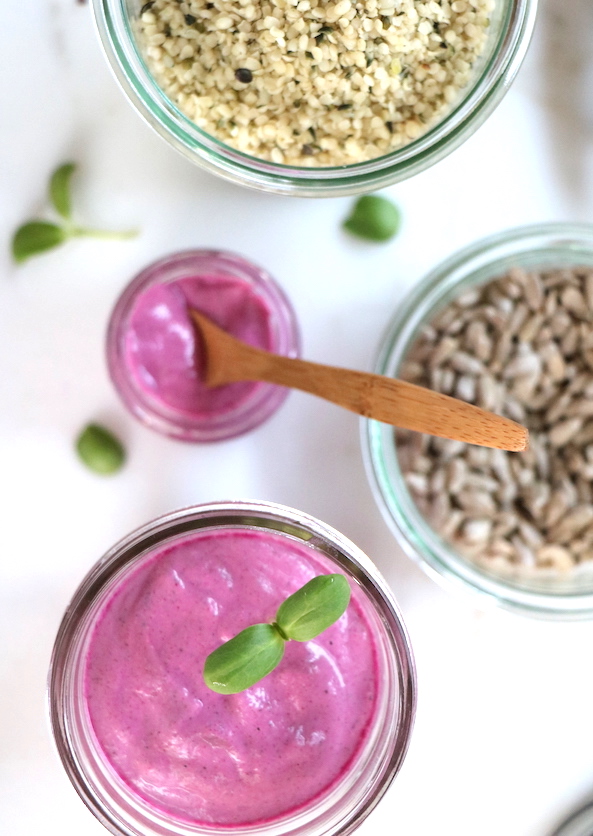Whether diabetes, Crohn’s disease, or rheumatism – is it possible that these chronic diseases could be caused by “silent inflammation?”
In the following article, we want to show to what extent silent inflammation can be a breeding ground for chronic diseases and how an anti-inflammatory diet can counteract this issue.
Rise of Chronic Diseases
Almost half of Germans are now considered to have some kind of chronic condition – including more and more young people. Particularly in industrialized countries, the number of chronic diseases has risen sharply in recent decades – a clear indication that these diseases are linked to the modern, Western lifestyle.
Chronic conditions include:
- Acne
- Asthma
- Arteriosclerosis
- Chronisch-Entzündliche Darmerkrankungen wie Morbus Crohn und Colitis Ulcerosa
- Dementia
- Diabetes mellitus
- Multiple Sclerose
- Parkinson’s disease
- Periodontitis
- Rheumatoid arthritis
The number of chronic diseases has risen rapidly in recent decades. The reason for this: the inflammation-promoting, modern, Western lifestyle.

Silent Inflammation: Breeding Ground for Disease
Silent inflammation is insidious. As the name suggests, it happens “silently” and often goes unnoticed for a long time.
In contrast to acute inflammation, which is noticeable by pain, redness, and swelling, silent inflammation is difficult to detect. Ongoing inflammatory processes also keep the immune system in constant action, often resulting in chronic disease.
Silent inflammation can be detected in the blood count through the marker CRP. If this amount is above 5 mg/liter, then it can get as high as 100 mg/liter. Additionally, it can be recognized in the blood count by an increased number of leukocytes.
Triggers Fuel Inflammation
Influences that promote inflammation, also called triggers, are everywhere in today’s environment:
- Stress, environmental toxins, lack of sleep, nicotine, and alcohol – depending on lifestyle, the body is confronted daily with various stresses and stimuli that can trigger silent inflammation and then keep it going.
- Root-treated, dead teeth produce pockets of inflammation.
- Abdominal fat – visceral adipose tissue in the abdomen sends out messengers that promote silent inflammation (1).
Once the inflammatory fire has been ignited, these various triggers keep it burning. This ongoing emergency program weakens the immune system and provides a breeding ground for a number of diseases. In some cases, the body can even start attacking its own cells. The result is autoimmune diseases like multiple sclerosis, Hashimoto’s, or Crohn’s disease.
Inflammatory influences – which we call triggers– like stress, smoking, environmental toxins, root-treated teeth, or abdominal fat, keep chronic inflammation going – and this provides a breeding ground for a variety of diseases.
Are you interessted in gaining a comprehensive understanding of the health benefits of a plant-based diet? Download the curriculum for our Holistic Nutrition Coach training program.
Connection: Leaky Gut and Silent Inflammation
Silent inflammation often occurs in conjunction with leaky gut syndrome. Leaky gut, in which the permeability of the mucosa of the small intestine is increased, is often viewed as the cause of silent inflammation – but in individual cases it’s not possible to prove what leads to what. Here the comparison of the chicken and egg problem is very appropriate: Which came first, the chicken or the egg? The leaky gut or the silent inflammation? What’s certain, in any case, is that inflammatory processes promote leaky gut, and the “leaky gut” in turn fuels inflammatory processes in the intestinal mucosa and other body systems.
Researchers are increasingly starting to recognize links between the coincidence of leaky gut syndrome and chronic inflammatory diseases (2). Increased intestinal permeability causes the mucosa to fail at properly performing its protective barrier function. As a result, undesirable substances like gluten, lactose, and toxins start to enter the bloodstream. In response, the immune system is put on permanent alert and causes the development of persistent inflammation.

Anti-Inflammatory Diet
Diet plays a particularly important role in chronic inflammation and disease. Certain products or ingredients can fuel inflammation, while natural, plant-based foods inhibit it.
Inflammation-promoting foods:
- Sugar and isolated carbohydrates: The intense insulin releases required to metabolize sugar and isolated carbohydrates, like white flour products, activate the enzyme delta-5 desaturase, which supports the formation of pro-inflammatory arachidonic acid from linoleic acid (3).
- Trans fats: These are found in a lot of baked goods, sweets, and fried foods. Studies show that artificially hydrogenated fatty acids promote inflammation and encourage the development of cardiovascular disease (4).
- Convenience products: Heavily processed industrial products often contain trans fats, lots of sugar, salt, and plenty of additives like preservatives and flavor enhancers – all factors that promote inflammation (5).
- Wheat: The majority of bakery products sold and consumed today are made from whole wheat flour. Studies show a link between this type of grain and inflammation (6).
- Gluten: The gluten protein is considered an allergen and trigger for leaky gut syndrome and inflammation. People who are already affected by this should avoid gluten-containing grains in particular, like wheat, rye, and spelt, among others (7).
- Processed meat and red meat: These products are rich in nitrite and purine. When heavily heated or grilled, they develop AGEs (=Advanced Glycation Endproducts), which promote inflammation (8).
- Dairy products: contain casein, which promotes inflammation (9).
- Pork: contains arachidonic acid, which promotes inflammation (10).
- Refined salt: Studies indicate that avoiding table salt can have a positive effect on chronic inflammation (11).
What we refer to as the “Western diet” is high in sugar, trans fats, pork, and isolated carbohydrates, which all promote inflammation.
And did you know?
Vegan foods also cause inflammation. For example:
- Soy and thus most meat substitutes
- Vegetable fats like rapeseed oil, sunflower oil, and thus most vegan spreads
- All products containing sugar and white flour
Anti-inflammatories:
- Antioxidants: there are various antioxidants found in foods as phytonutrients or vitamins, like vitamin C and E. They scavenge free radicals, protecting cellular health, and also have other individual health-promoting properties. These antioxidants all have anti-inflammatory effects:
- Flavonoids from berries, cherries, grapes, green tea, and wild herbs additionally reduce the risk of certain cancers and cardiovascular diseases (12).
- Carotenoids from carrots, tomatoes, pumpkins, or apricots additionally prevent eye diseases and strengthen vision(13).
- Polyphenols from ginger (gingerols) and turmeric (curcumin).
- Oligomeric proanthocyanidins, OPC for short, are found in blueberries, plums, chokeberries, dark chocolate, and almonds. The substance is one of the most powerful anti-inflammatories.
- Omega-3 fatty acids: The eicosapentaenoic (EPA) and docosahexaenoic (DHA) acids found in fatty fish like salmon and mackerel inhibit inflammation in cells. Due to overfishing, the proliferation of microplastics, and heavy metals, we recommend instead plant-based sources of omega-3s like flaxseeds, chia seeds, hemp seeds, or walnuts. See also our article on a healthy fat supply..
- Chlorophyll from green leafy vegetables: Wild plants and dark green species in particular like kale, chard, arugula, and spinach contain a lot of chlorophyll. The plant pigment helps the liver to eliminate inflammation-promoting heavy metals and environmental toxins.
- Probiotic foods: If the intestinal bacteria are out of balance, it’s not just the inflammatory potential in the body that increases. Dysbiosis also promotes the development of various diseases, like leaky gut syndrome. Plant-based, probiotic foods that contain beneficial intestinal bacteria, and can thus restore the balance, include fermented foods like kombucha, kimchi, sauerkraut, and also fermented juices.
- Magnesium: Studies have shown that this mineral, which has around 300 roles in the body, has a positive effect on inflammatory processes, including reducing inflammation in artery walls, which contributes to healthier circulation (14). Valuable sources of magnesium include sesame seeds, pumpkin seeds, sunflower seeds, poppy seeds, almonds, nettle, and bananas.
- Mustard oil glycosides: These substances contained in mustard seeds, broccoli sprouts, horseradish, cress, arugula, and radishes not only provide these vegetables with their sharp taste, but also have an anti-inflammatory effect
Anyone who eats a lot of natural foods, like vegetables, berries, nuts, seeds, and sprouts, automatically eats an anti-inflammatory diet.
The Raw Vegan Diet: The Consistent Path to Sustainable Health
The commonality of chronic diseases and the aforementioned points show us that we actually cannot afford to eat unconsciously anymore. Bread, milk, meat, and industrial products are mostly acid-forming, and conventionally are also rich in pollutants, meaning they promote inflammation.
The Raw Vegan Diet Is the Method of Choice
Fresh and natural foods are
- rich in enzymes, chlorophyll, bitter substances, minerals, vitamins, antioxidants, and phytonutrients
- have a predominantly alkaline and anti-inflammatory effect
- initiate proper acid-base balance and counteract inflammation in the long run
Additionally, the well-designed raw vegan diet has a detoxifying effect on our body and enables the regeneration of cells and the microbiome in the intestine. So step by step, the body regains the basic prerequisite for health, allowing its quest for self-healing to take effect.
Recovery can be boosted by the following elements:
- Drinking enough high quality water
- Vegetable juice fasting
- Enemas
- Intestinal cleansing
- Alkaline baths
- Sauna sessions
- Dry brush massages
- Intermittent fasting
- Reducing Stress
Maja Biel (Author)
Ecotrophologist, food journalist and nutritionist. Maja has her own practice and supports Your Nutrition Academy with her expertise.
Below we present some recipes for practical implementation:
The Anti-Inflammation Booster
Tip number one is the turmeric-ginger shot. Turmeric and ginger both have a strong antioxidant and anti-inflammatory effect.
The Wild Plant Salad
A classic among the wild plant preparations is the wild plant salad.

Flaxseeds Crackers
Flaxseeds are rich are in omega-3 fatty acids.
The Beet Hemp Seed Dip
Beet are rich antioxidants and hemp seeds have abundant omega-3 fatty acids.
Would you like to join our unique, based on nutritional sciences and practice-oriented training program for gaining a high level of health?
We are more than happy to inform you about our training program on our website!









0 Comments